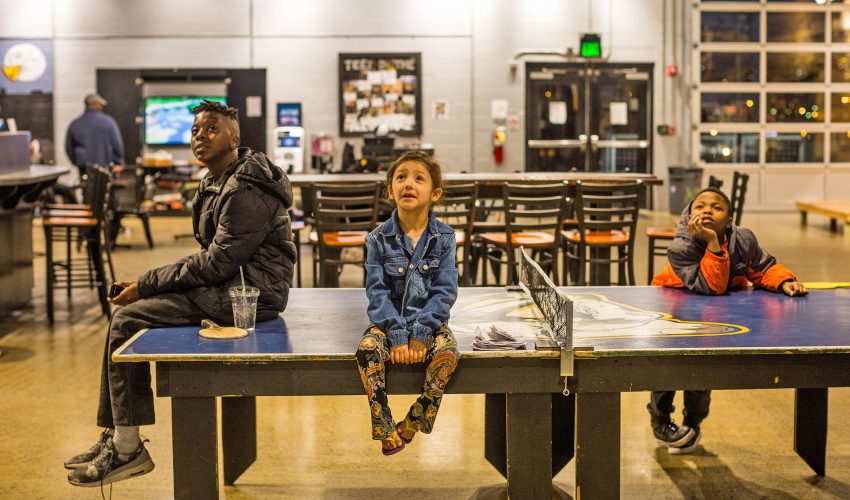Would you want to be 13 again? Really think about it.
Eighteen? Maybe. Twenty-one? Okay. But 13 — Most people who really remember seventh grade would probably not choose to relive it, and that’s because becoming a teenager is so confusing. Half the time you’re hoping no one sees you in case you mess up. Simultaneously, you’re hoping someone — anyone — sees you for who you are. And that’s just any given Thursday.
For a family, delving into those feelings over dinner is a tall order, no matter how loving and communicative they are.
Many teenagers simply can’t or won’t talk to their parents openly.
That creates a gap when it comes to mental and emotional health.
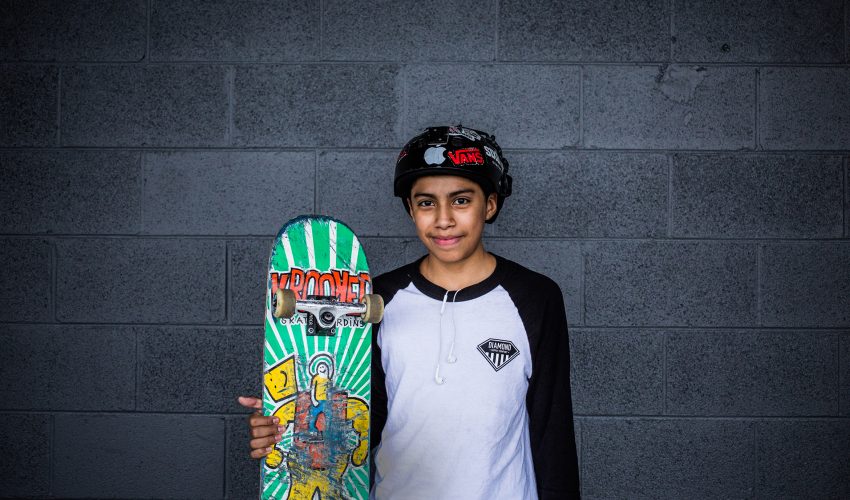
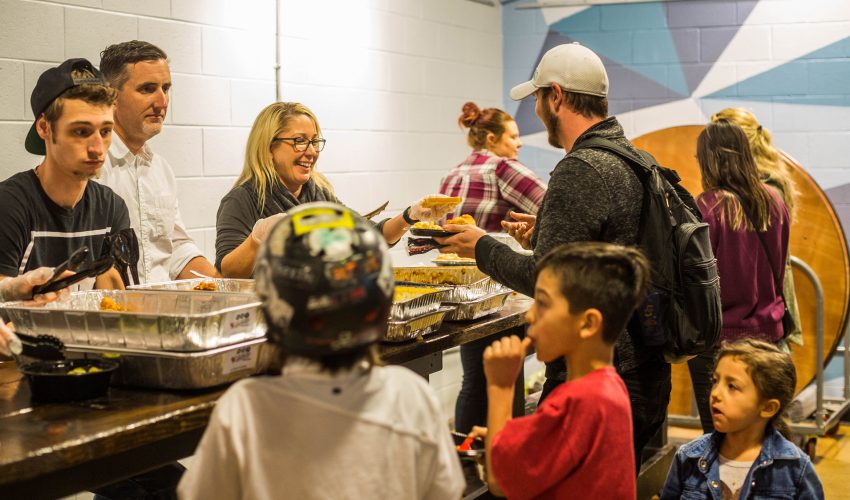
Be yourself, whoever you are
Enter Rocketown. At the youth hangout in downtown Nashville, teens have space to be themselves and pursue their interests freely. From an indoor skatepark to a recording studio to weekly family dinners, Rocketown offers a safe place for adolescents at a time in their lives when they need it most. Here, they are surrounded not by judgment but by love, though they never have to ask for it.
“I started coming to Rocketown regularly when I was 12,” says Gabriel Gordon Graham, 24, who now works at Rocketown part-time when he’s not prepping the ice for the Nashville Predators. “Growing up, my parents worked, so I had a lot of time by myself. I struggled with depression but I couldn’t talk to my family about it.
“When you’re struggling, you don’t want to feel like people are treating you differently or babying you.”
“At Rocketown, no one pressured me to talk about my problems — I was just ‘hanging out’ — but really they were helping me in ways I couldn’t understand. I realize now I was being counseled without ever being counseled, and that got me through one of the worst times of my life.”
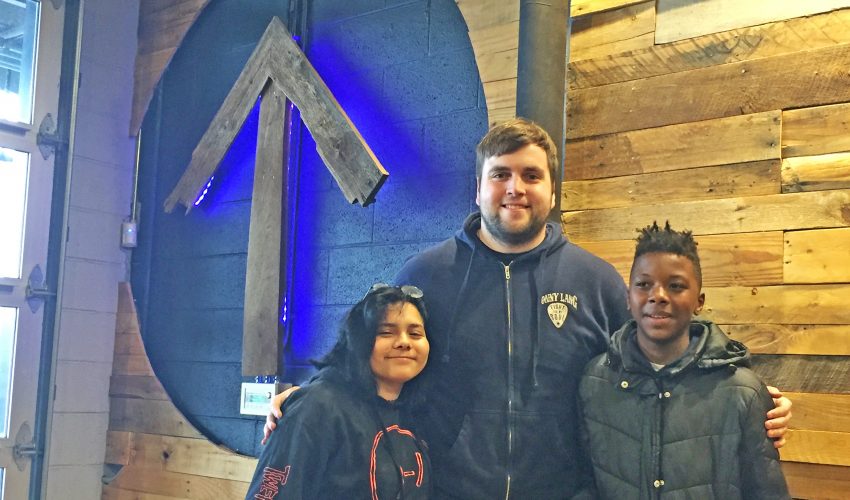
Gabriel Graham (center) spends a lot of his free time at Rocketown, just like he did as a teen.
That connection is something Graham and Rocketown do not take lightly. Supporting kids who feel alone is the reason they started their weekly Family Dinner program, where people from all walks of life can come, eat and talk. As with many beautiful things, it came from a place of sadness. Back in 2011, one of the teens at Rocketown committed suicide. It shook the Rocketown family to its core.
“At the time, I remember a lot of us had never been through anything like that before,” says Graham. “I remember the staff saying, ‘Hey, let’s have everyone bring food and get together and talk through this. We can go through this together as opposed to on our own.’ That was pretty revolutionary for a lot of us.”
Jenny Myhr, Director of Development and Communications at Rocketown, recalls another reason Family Dinner was such an important step for the staff.
“After that young man took his own life, a ton of kids showed up at the funeral,” Myhr says.
“His mom looked at them and said, ‘If he had known he had so many friends, I bet he wouldn’t have done this.’”
“That’s when the staff decided it was just unacceptable for any kid to feel this way. That’s what we’re here for — to let kids know we love them and that God loves them, and that they belong.”
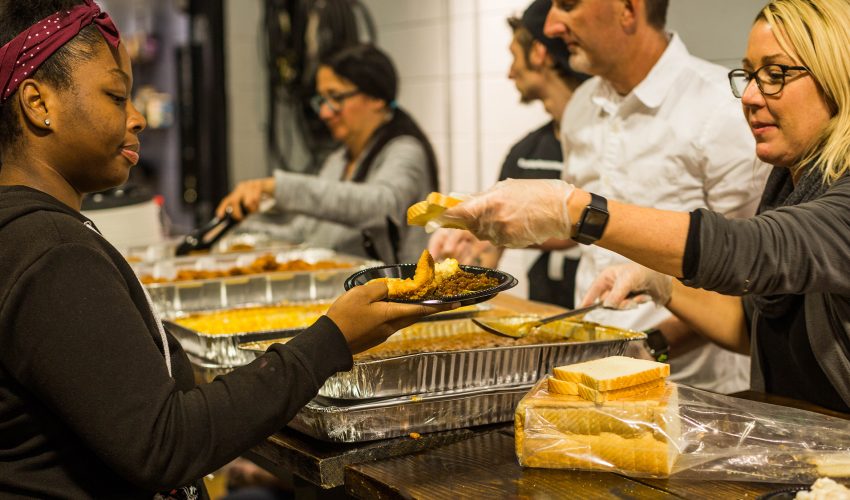
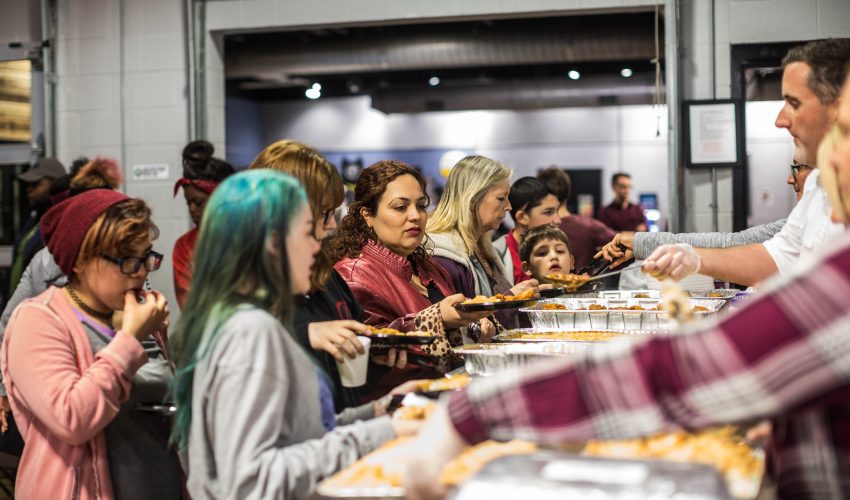
Redefining unconditional
The young man’s mother attended that first dinner, and many after. Originally it was a potluck, but today the meals are donated by restaurants like Martin’s BBQ or Hattie B’s. On a typical Thursday, 30 to 60 people show up, and near the holidays, it’s hundreds. Some people share questions or struggles with the group. Some talk one on one. Others don’t do anything except eat and leave. And that’s okay, too.
“We want to make sure these kids are fed, that they get a hot meal,” says Myhr. “We can’t even touch a kid’s spirit if they’re not in a good place physically and mentally, and that’s where the funding from BlueCross comes into play — helping us meet those basic needs so we can serve kids who don’t feel like they belong.”
That kind of unconditional acceptance is pervasive at Rocketown, which is, at its core, a Christian-based ministry.
“All I knew when I was young was that there was a group of people who really cared about me,” says Graham.
“I wasn’t being preached to or forced to believe, and I could disagree fundamentally with the staff and still be loved. Come as you are — that’s the message.”
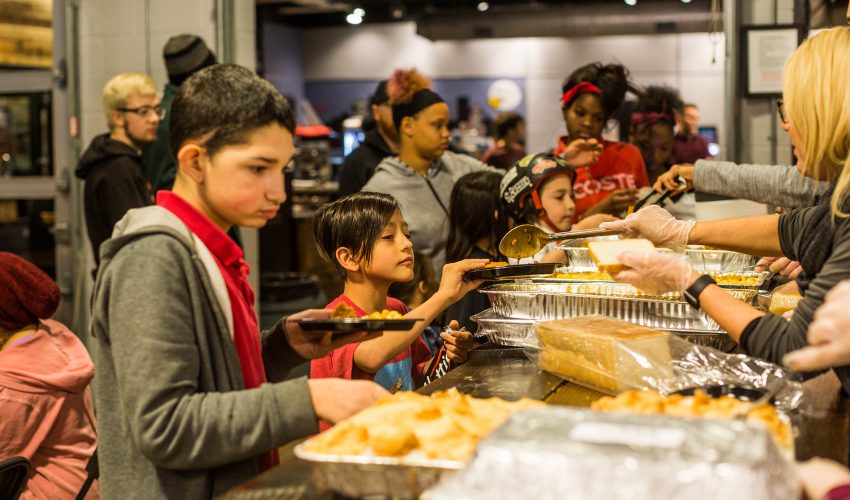
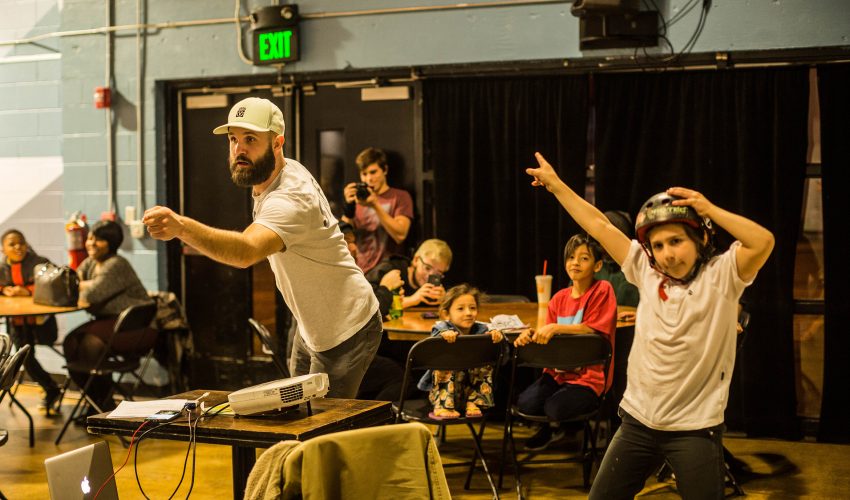
Now, Graham sees how hard the staff works to create that inclusivity. When a kid is struggling, they respect confidentiality but always communicate so everyone can be on the lookout for kids who are hurting. The experience has been so transformative for Graham that he’s taken his commitment to his community a step further: he’s applied to join the fire department.
“Rocketown helped me realize how much I love helping people,” he says.
“Working there, learning how to be aware and how to offer empathy, sympathy and compassion to every kid who walks in the door — it’s been such a turning point, for me and, I hope, for these kids.”
